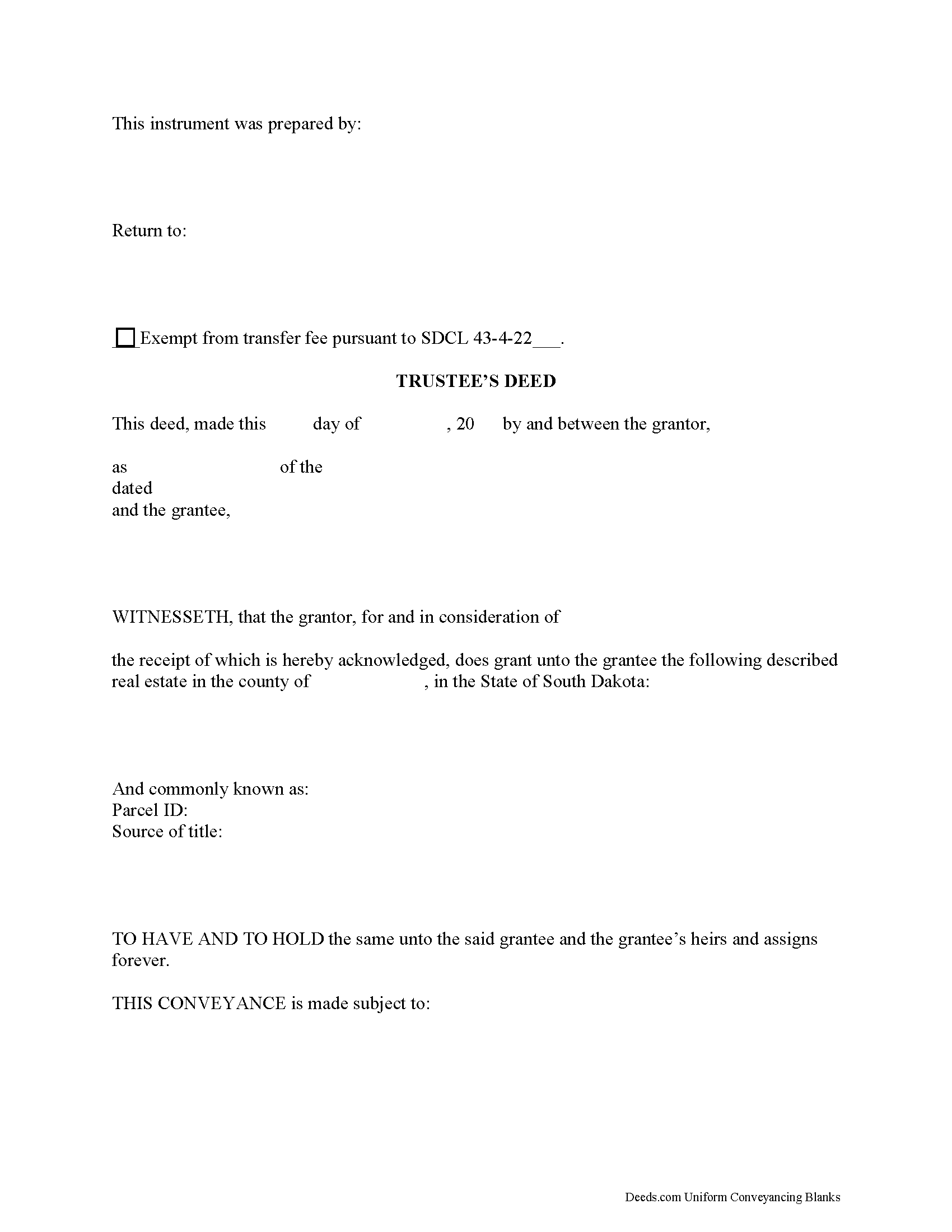Download South Dakota Trustee Deed Legal Forms

South Dakota Trustee Deed Overview

Transferring Real Property by Trust in South Dakota
In a trust arrangement, a settlor transfers property (which may include real estate) to another person (called the trustee) for the benefit of another (called the beneficiary). Trusts that take effect during the settlor's lifetime are called living (inter vivos) trusts, and trusts that take effect upon the settlor's (testator's) death through the provisions of a will are called testamentary trusts.
In a living trust, a settlor may serve in all three capacities, as long as he is not the sole beneficiary. Living trusts are estate planning tools that take effect during a settlors' lifetime and allow them to determine how their assets will be managed upon death.
In South Dakota, trusts relating to real property must be created by a written instrument signed by the trustee (SDCL 43-10-4). The trust instrument establishes the trust's provisions, determines how the trust will be managed, designates the trustee and the trustee's powers, and identifies the trust beneficiary. Trust instruments are generally unrecorded in order to maintain the privacy of the settlor's estate plan. Transfers of real property to into trust can either occur concurrently with execution of the trust instrument, or the settlor can execute a later deed titling the property in the name of the trustee on behalf of the trust.
Unless otherwise limited by the terms of the trust, a trustee has a statutory power to "acquire, sell, or otherwise dispose of an asset" (SDCL 55-1A-11). Most trust instruments specifically include a power of sale. Transferring real property from a living trust requires a trustee's deed. A trustee's deed is named for the executing party rather than for the type of warranty conveyed.
In South Dakota, a trustee's deed carries the implied covenants typically associated with a special warranty deed. The word "grant" in the granting clause implies that "the grantor has not conveyed the same estate...to any person other than the grantee" and that "such estate is...free from encumbrances done, made, or suffered by the grantor, or any person claiming under him" (43-25-10).
In titling the property in the name of the grantee, the form of the trustee's deed names each granting trustee and the name and date of the trust on behalf of which the trustee is acting. A valid instrument also includes all requirements for documents relating to real property, such as a legal description of the subject parcel, and compliance with the recording prerequisites established at SDCL 43-28-23. Transfers of property in South Dakota require a certificate of real estate value and payment of applicable transfer fees.
Before recording the deed in the applicable county, it must be signed by each granting trustee in the presence of a notary public. At the time of conveyance, the trustee may also execute a certificate of trust in support of a real property transaction under SDCL 55-4-51.3 to confirm the trust's existence and his authority to convey the property.
Consult a lawyer in the preparation of a trustee's deed in South Dakota. Trust law can quickly become complex, and each situation requires unique attention.
(South Dakota TD Package includes form, guidelines, and completed example)